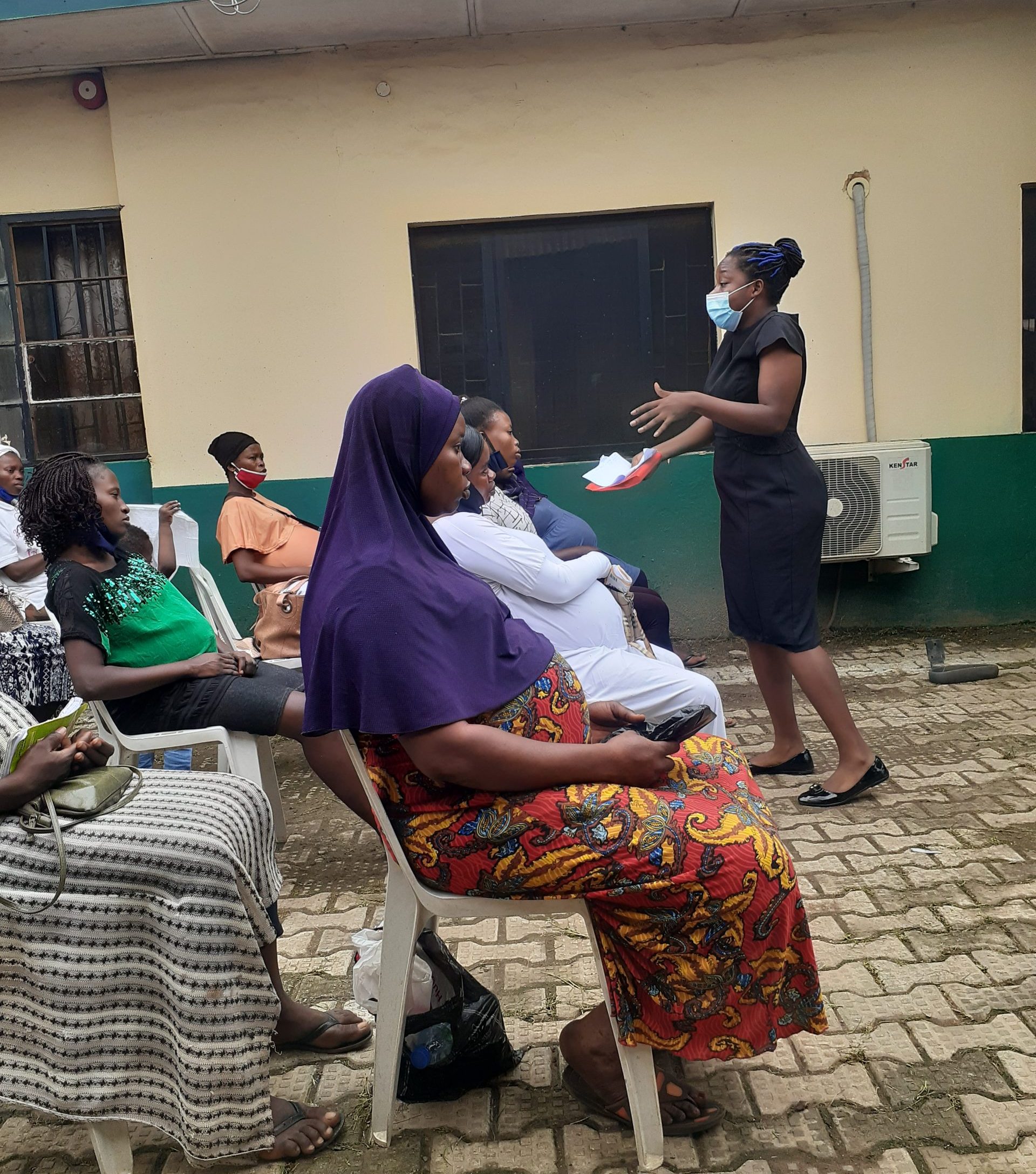In 2021, according to the Global Health Observatory on the extent of Universal Health Coverage (UHC) implementation; Nigeria ranked 163 out of 191 countries in the world.
Universal health coverage happens when all persons and communities receive the full range of services from health promotion to prevention, treatment, rehabilitation, and palliative care throughout their life course, when needed and of sufficient quality – while ensuring that the recipients of these services are not exposed to financial hardship.
In other words, universal health coverage is the acquisition of good health services without fear of financial bankruptcy. However, the current over 70% out-of-pocket expenditure on low-quality healthcare services in Nigeria doesn’t encourage.
This year, FutureProofing reported that Nigeria ranked 14th with a total of 41 points out of 18 African countries and last in effective management of maternal mortality, infant vaccination, and neonatal mortality. Therefore, placing Nigeria among the countries with the worst healthcare indices, services or system in Africa and the world.
In evaluating and comparing healthcare quality, the three components approach of Donabedian model comes in handy. As it does not only give a comprehensive view of the present state of healthcare structures but also presents an evaluation of the effectiveness of existing policies and a foundation for improvement measures. This conceptual model provides a solid framework for examining healthcare and has three major components: Structure, Process and Outcome.
The Structure component includes the factors that affect the conditions and environment in which healthcare is delivered. This includes physical resources such as facilities, equipment, financial resources, human resources, and organizational components; such as quality of medical training, healthcare provider-to-patient ratios, and working hours. This component gives a sense of how “in” or “out-of-line” the country’s healthcare capacity, systems, and processes are with providing high-quality care.
Nigeria currently operates on a doctor-to-patient ratio of 1:6000, which is significantly lower than the WHO-recommended ratio of 1:600. This is mainly owing to the massive medical brain drain currently experienced in the country. At least 2,000 medical professionals are thought to emigrate from the nation every year, primarily to the United Kingdom, the United States, Canada, Australia, the United Arab Emirates (UAE), and South Africa. Therefore, leaving one of the strongest pillars of a solid healthcare system – human resources – strongly depleted. This emigration is caused by the unhealthy work environment, high insecurity rate, a challenging and excessive workload, low remuneration, poor medical education, and lack of adequate facilities.
Eight years ago, Dr. Ameyo Stella Adedavoh, lead consultant physician and endocrinologist in a private hospital in Lagos, along with four of her colleagues, died after contracting the Ebola Virus Disease (EVD) from a patient. This was a prize they had to pay for treating Mr Sawyer (the first EVD contact case) and containing the deadly Ebola incursion in the most populated city in Nigeria. During this crucial period, the Joint Health Sector Union (JOHESU) had just embarked on yet another indefinite strike action, crippling the full activities of all government hospitals across the nation. Subsequently, of the 20 Ebola cases recorded, 11 were health workers and despite this level of exposure, health workers do not only have to fight for their right to be paid, but also have to fight for their safety.
Similarly, in 2020 at the crux of a COVID-19 pandemic, doctors in state-owned hospitals embarked on a strike due to inadequate protective equipment and a call for appropriate hazard allowance for those working on COVID-19 patients. These harsh conditions have subjected healthcare workers to great danger and increased risk in an attempt to provide the best care in a system with inadequate or sometimes delayed remuneration and insufficient work tools or equipment. Also, with the increasing emigration of over 2000 doctors yearly, we are on a dreadful path to the absolute crumbling of what is left of healthcare security in the country.
Furthermore, the Process component reflects how healthcare systems and procedures operate to provide the intended results. It examines adherence to the holistic approach to delivering healthcare services and represents the sum of all actions that constitute healthcare. This encompasses everything from diagnosis to treatment to preventive care, patient education, and how care is provided to interpersonal interactions.
The National Health Act (NHAct), which provides a legal framework for regulating, developing, and managing Nigeria’s Health System, basically controlling the process of delivering Healthcare services, was signed into law in 2014. Amidst the excitement this new policy ushered in, the long history of poor implementation of critical policies over the years repeated itself. This is demonstrated by the government’s lacklustre political commitment to enforcing this Act.
The Basic Health Care Provision Fund (BHCPF), an integral component of the NHAct, is constantly subjected to no earmarking or insufficient allocation in the already inadequate Federal Ministry of Health (FMOH) budget.
In 2022, the federal government allocated only 4.96 per cent of the total budget for healthcare. This goes to show that only a small amount of the budget is still apportioned to financing health care, of which a sizeable portion of the budget allocation goes to recurring expenses and a far smaller portion to capital expenditures. It is no surprise that eight years later, this act has not made any significant change in the process of healthcare delivery. If anything at all, the increased depth of maladministration and neglect has resulted in an even greater level of disorganization.
Additionally, the President recently signed the National Health Insurance Authority Act into law, rescinding the National Health Insurance Scheme Act of 1999. By regulating the promotion, regulation, integration of health insurance systems, and other relevant matters in Nigeria through mandatory health insurance and subsidisation of health insurance coverage for vulnerable persons, this aims to make it easier for all Nigerian citizens to access health coverage.
Although this is a step in the right direction, it still raises the question of sustainability and proper execution. Will this, like many attempts to refurbish sectors of the country with new acts and laws, get lost in translation from law to action? The country is stuck in a loop of administrations creating healthcare policies never implemented and discarded by the next administration as solutions to ever-expanding problems. Sadly, we are just a few circles around this loop away from the breaking point.
The last component of the Donabedian model – Outcome – includes healthcare impacts on patients or populations, such as reduced mortality, reduced duration of hospital stay, lower hospital-acquired infections, fewer emergency admissions, and enhanced patient and healthcare provider experience. This, with the generally unpleasant state of our healthcare structures and ineffectiveness of the process of healthcare service delivery all add up to – leaving a bitter taste in the mouth of every patient that walks through the halls of healthcare facilities in the country.
Nigeria’s infant mortality rate is presently 56 for every 1000 live births, following a decline of over 10% in the last five years and ranking third among countries with the worst infant mortality rate in the world. Also, Nigeria currently occupies the global capital of maternal mortality, accounting for over 34 per cent of world maternal deaths, making Nigeria one of the most dangerous places in the world to give birth.
This high maternal and infant mortality rate is significantly impacted by the difficulty of getting high-quality healthcare in most Nigerian healthcare institutions. The majority of Nigerian hospitals, in particular the primary healthcare facilities where women go for maternity care, need better funding and provision of high-level equipment required for the smooth running of these centres to meet the community’s needs.
In general, the quality of services provided by a healthcare facility, patient experiences and perceptions of excellent healthcare impact utilization. This has resulted in a dangerous practice of seeking professional medical help from untrained and unskilled quacks which have caused significant damage, popularly seen in the country’s local communities.
Even with the availability of essential components required to build a sustainable healthcare system, the quality of healthcare service delivery in Nigeria has steadily declined and is on the verge of total collapse. This is as a result of lack of political will and commitment displayed by succeeding administrations, to address several issues that have plagued this sector for a long time. This is evidenced by a lack of coordination, service fragmentation, lack of resources (including drugs and supplies), deteriorating infrastructure, unequal resource distribution, unequal access to treatment, and inferior quality of care. Consequently, this negligence directly affects citizens’ productivity and indirectly, Nigeria’s economic expansion.
To salvage this current condition, the next administration must prioritize healthcare financing, management and capacity building of healthcare professionals through integrated medical education, professional skill training, and research towards affordability, availability and accessibility to high-quality healthcare services. They must also analyse existing policies to update redundancy and create sustainable, measurable, and time-oriented plans to implement them.
As we approach another season of voting a new administration to hold the reins for the next four years, we must consciously consider the possible cataclysmic healthcare flatline and disintegration waiting on the other side, if this lacklustre political devotion persists. Hence, we must ensure we vote based on competence and credibility, as our lives depend on it.
References:
- Nigeria Sustainability Index | FutureProofing Healthcare
- Out-of-pocket expenditure (% of current health expenditure) – Nigeria | Data
- Countries ranked by UHC service coverage index
- A model for measuring quality care
- Mortality rate of infants under one-year-old in Nigeria as of 2022, by gender
- Nigeria Infant Mortality Rate 1950-2022
- THE GLOBAL HEALTH OBSERVATORY

About Author:
Ogooluwa Ajiboso is a passionate and result driven medical doctor-in-training. A social entrepreneur, serial volunteer, writer, content creator, public speaker, event host, Youtuber and social advocate for mental health, gender equality, sexual and reproductive health. She utilizes strong vocabulary, grammar, and imagination to communicate with utmost clarity. She writes about Mental Health, Women, Healthcare and everything in between.


